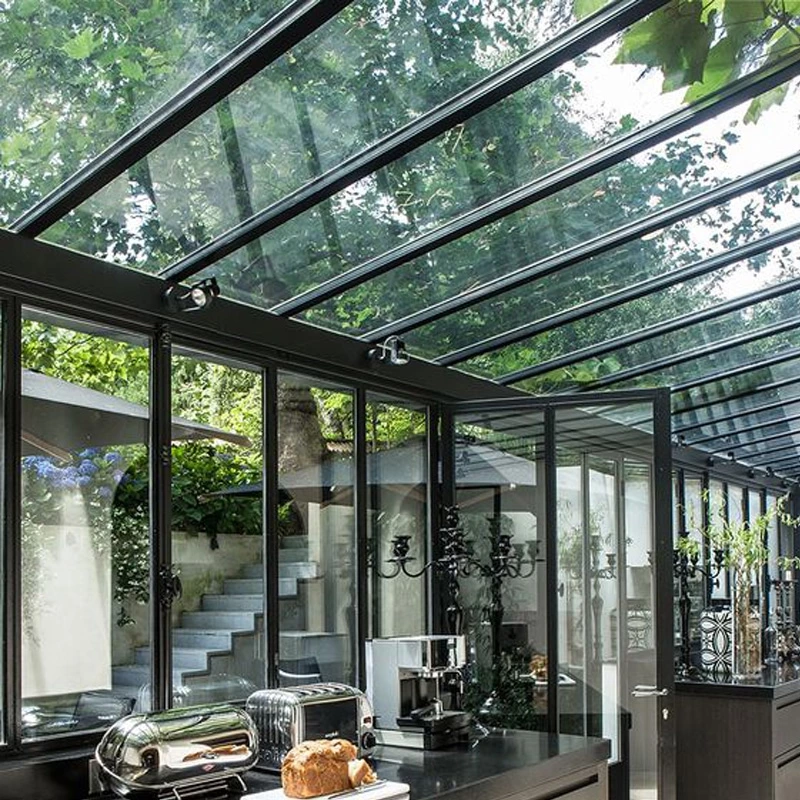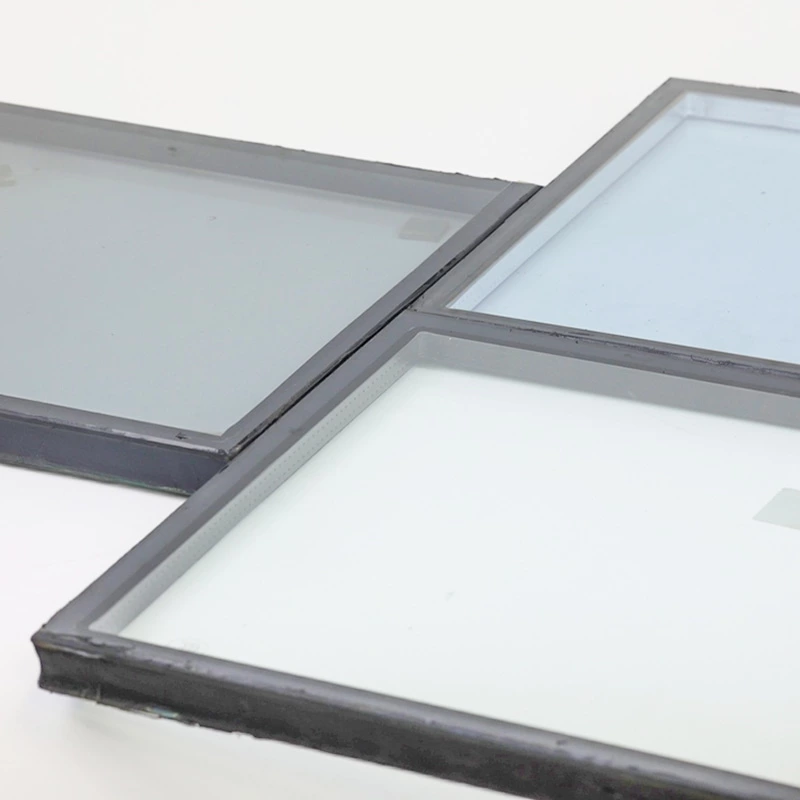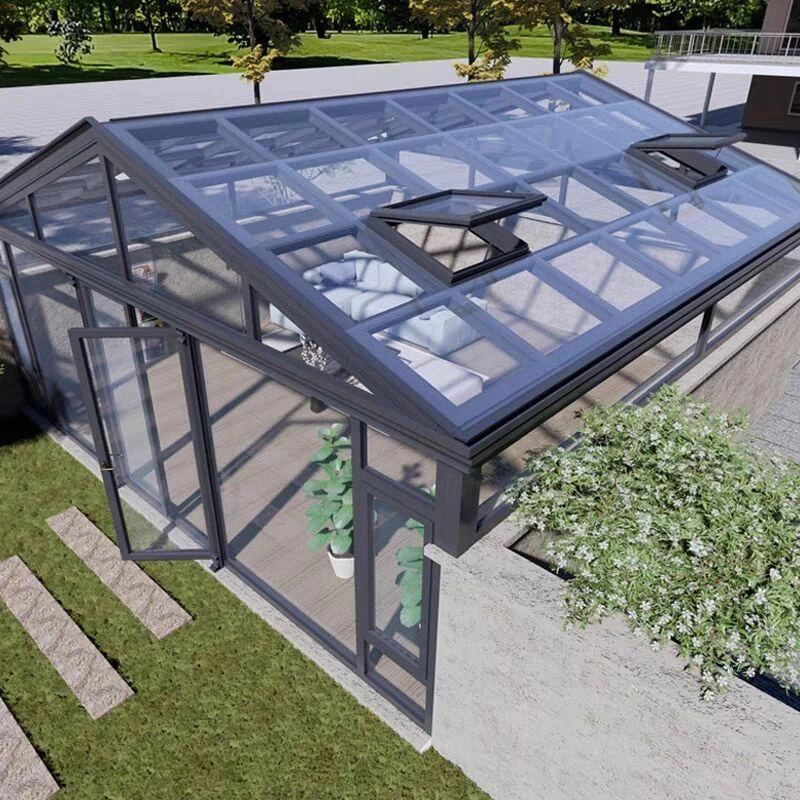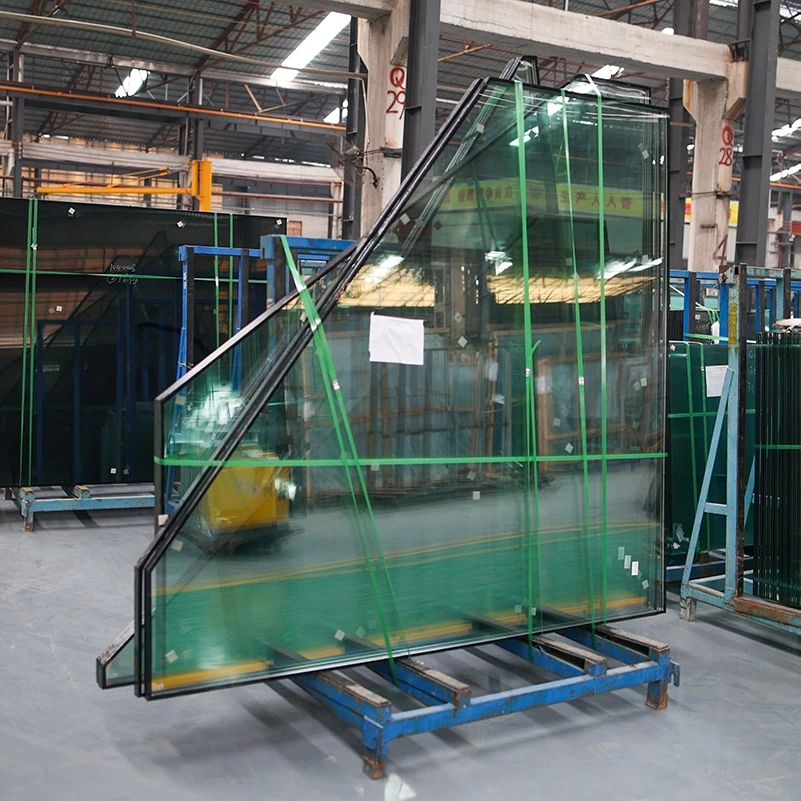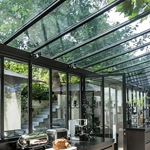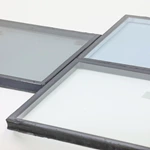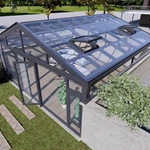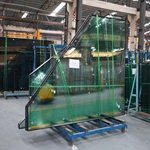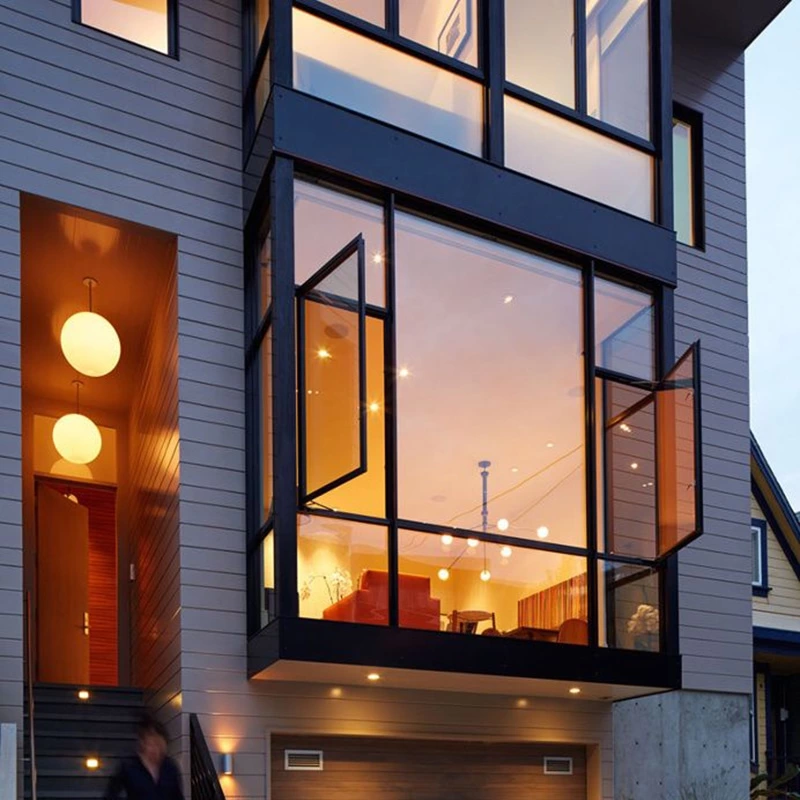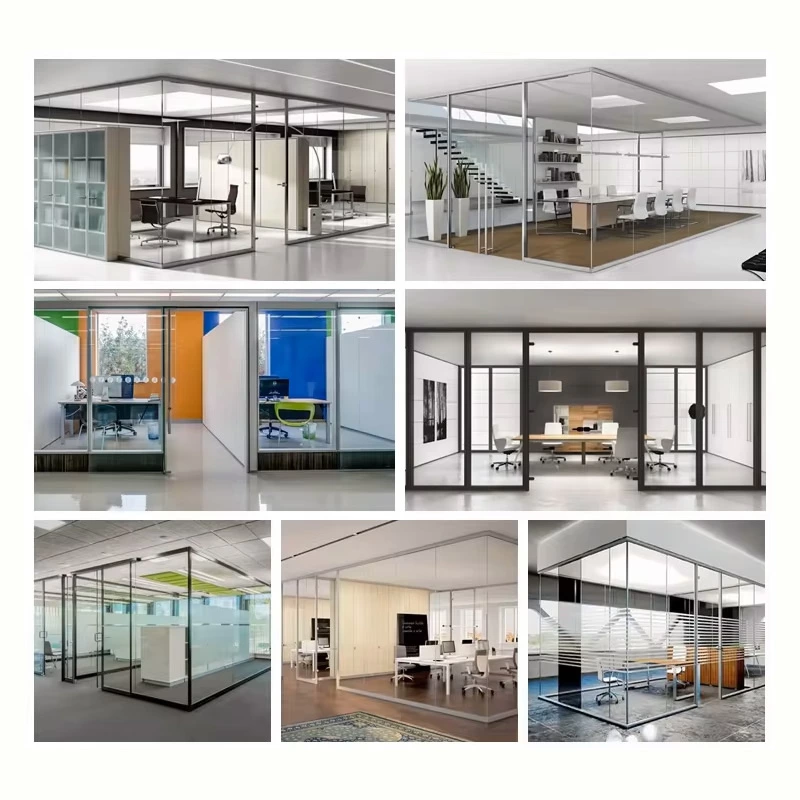A sunroom, as a part of modern homes, aims to bring natural light indoors, creating a comfortable, bright space closely connected to nature. Choosing the right type of glass is crucial as it directly impacts comfort, energy efficiency, and enhances living quality and experience. This article explores several common types of sunroom glass for insulated glass and advantages.
1.Insulated Glass: Soundproof,Heatproof and Reduces condensation
Insulated glass in sunrooms benefits from its unique structure and functional advantages. With an air layer in between, insulated glass effectively prevents the conduction of external heat, thus helping to regulate indoor temperatures in summer, reducing the frequency of air conditioner usage, and saving energy. Additionally, this structure significantly improves indoor sound insulation, providing a quiet and comfortable leisure space. During hazy weather, insulated glass reduces condensation on the glass surface, maintaining clear visibility and indoor air quality. Furthermore, due to its excellent safety performance, insulated glass maintains relative integrity even in unforeseen circumstances, enhancing the overall safety of sunrooms, making it particularly suitable for households with children or pets.
2. Low-E Glass: Perfect Blend of Insulation and Energy Efficiency
Low-emissivity glass (Low-E glass) is widely used for sunrooms. It features a microscopically thin coating of metal oxide layers that reduces heat transfer effectively. In winter, it prevents indoor heat loss, improving insulation. Compared to traditional glass, Low-E glass not only reduces heating costs but also blocks external heat in summer, reducing the need for air conditioning and saving energy. This glass ensures year-round comfort and lowers household energy consumption, aligning with modern environmental values while reducing energy expenses.
3. Reflective Glass: Light Control and Interior Protection
Reflective glass is another popular option known for its excellent optical properties. It reflects a portion of sunlight, reducing glare and UV penetration indoors. This enhances visual comfort, preventing the sunroom from being too bright or causing discomfort, while also protecting indoor furniture, flooring, and decor from UV damage. Choosing reflective glass prolongs the lifespan of interior furnishings and enhances the sunroom's role in both leisure and home protection.
Customized Glass
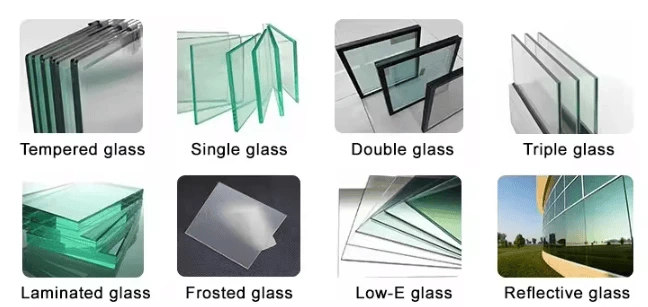
Conclusion
Choosing the right type of glass is crucial for enhancing comfort, energy efficiency, and functionality in sunrooms. Each type of glass offers unique advantages in insulation, light control, privacy protection, and environmental conservation, significantly improving the sunroom's overall appeal and usability. When designing and furnishing a sunroom, it's essential to consider the family's specific needs, geographical conditions, and climate characteristics to select the most suitable glass type. This ensures residents can enjoy the beauty of life under natural light, whether in scorching summers or chilly winters.
